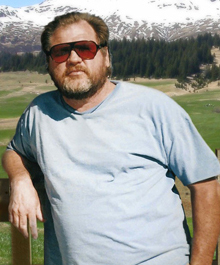 JOHN BERGERON
JOHN BERGERON
Bergeron boasts two invaluable talents. He is a brilliant engineer, able to master complicated recording equipment. And, somehow, he still manages to entrance your heart and mind with his beautiful and original music.
Originally from Thibodaux, Louisiana, Bergeron was only five when he began studying music. By age thirteen, he was already composing music in a town where Hank Williams Senior found himself musically inspired. Williams penned the well-known ‘Jambalaya’ on a vacation in Thibodaux in 1949, the same year Bergeron was introduced to the world.
The nearby city of New Orleans would serve as an obvious catalyst for Bergeron’s music. He attended Tulane University in the Crescent City to study electrical engineering. It was here he found a way to combine his two talents, learning the intricacies of a mixing board and how to use such equipment to further his own musical career.
After college, things got pretty exciting for Bergeron. In 1973, the young artist received an offer to record for Famous Music’s Tumbleweed Records. This sent him on another musical adventure, off to London to record and learn from Robin Geoffrey Cable. Cable was well known for his engineering work with Elton John (‘Your Song’) and Carly Simon (‘You’re So Vain’).
Bergeron continues to this day engineering and making great music at his DreamCatcher Recording Studio, now located in northern Connecticut. He has produced over twenty albums here. And there’s nothing he enjoys more than the finished product. He takes on a southern Louisiana attitude of giving back what he has gotten. It’s a karma deal for him. “After all,” he says, “What’s a society without art?”
Bergeron is currently working on a project that couldn’t be any closer to his own heart. “I am reclaiming all my old work from my early career,” he states, proud and determined to take on this laborious task. Dating back to the mid 70’s, he will work his way through hundreds of hours of tape, most of which never has been produced past the initial recording process. He’s rightfully proud of his past musical endeavors. “I know it touches me to hear it again. It’s that troubadour thing…ten fingers and one voice.”
Bergeron realizes how much time it takes to get the right combination of things on tape. “How many of those magical moments actually make it to the record?” he asks, using the logical left side of his brain. It never takes him too long, however, to blend into speaking from his right brain. You can hear the passion in his voice when he discusses working with great musicians. “It becomes that magical experience when you record it,” he says, excitedly, referring to his philosophy of capturing the best in a musician without much over dubbing or studio trickery. “I can’t imagine recording any other way.”
John Bergeron has truly combined what often seems unable to be connected; the right brain powers of creating art/music and the left brain capabilities of putting it all together the right way and with the right disposition. This is something most musicians spend years in search of, often with no luck.
Written by Craig Grossman
EDUCATION: B.S., UNIVERSITY OF COLORADO, DENVER

